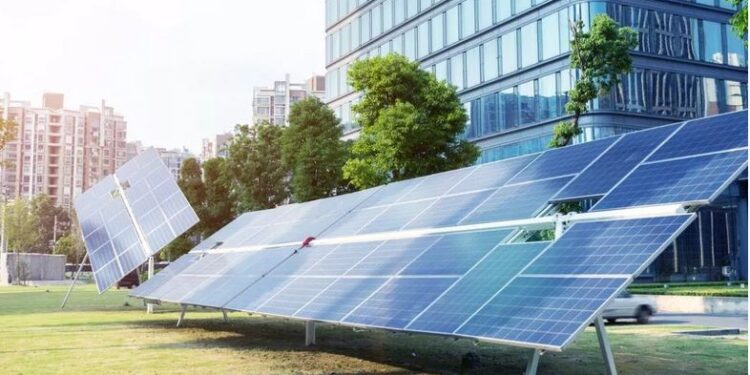solar energy has gained significant attention as a cost-effective and sustainable solution to meet the world’s growing energy demands. As concerns about climate change and the depletion of fossil fuel resources continue to rise, solar energy has emerged as a viable alternative that not only reduces greenhouse gas emissions but also offers long-term economic benefits. This article explores the economics of solar energy, focusing on cost-effective solutions in the context of Minneapolis. We will delve into the advantages of solar energy systems, the role of solar installers, and the economic incentives that make solar power an attractive option for individuals and businesses alike.
The Advantages of Solar Energy Systems
Solar energy systems, commonly known as solar photovoltaic (PV) systems, harness the power of sunlight and convert it into electricity. There are several advantages of solar energy systems that make them a compelling choice for homeowners and businesses in Minneapolis.
First and foremost, solar energy is a renewable and abundant resource. The sun’s energy is available in abundance and is not subject to price fluctuations or geopolitical tensions associated with fossil fuels. By investing in solar energy systems, individuals and businesses can reduce their dependence on conventional energy sources and mitigate the risks associated with volatile energy prices.
Moreover, solar energy systems have a long lifespan, typically ranging from 25 to 30 years, with minimal maintenance requirements. Once installed, solar panels continue to generate electricity for decades, providing a reliable and stable source of energy. This longevity ensures a consistent return on investment and reduces the need for frequent system replacements.
Furthermore, solar energy systems have a positive environmental impact. By utilizing solar power, individuals and businesses can significantly reduce their carbon footprint, contributing to the mitigation of climate change and the preservation of the environment. Solar energy is a clean and emission-free source of electricity, making it an essential component of a sustainable energy future.
The Role of Solar Installers in Minneapolis
Solar installers play a crucial role in the widespread adoption of solar energy systems in Minneapolis. These professionals possess the expertise and knowledge required to design, install, and maintain solar PV systems, ensuring optimal performance and efficiency.
When considering solar installation, it is essential to engage certified and experienced solar installers in Minneapolis. These professionals conduct site assessments to determine the solar potential of a property, taking into account factors such as roof orientation, shading, and structural integrity. Through their expertise, solar installers can customize solar energy systems that best fit the unique requirements of each customer, maximizing energy generation and minimizing costs.
Solar installers also assist with the necessary permits and paperwork involved in the installation process. They navigate the local regulations and ensure compliance with building codes and safety standards, simplifying the entire process for customers.
In addition to installation, solar installers provide ongoing maintenance and monitoring services. Regular maintenance ensures the optimal performance of the solar energy system, maximizing energy production and extending its lifespan. By partnering with a reputable solar installer, individuals and businesses can benefit from reliable technical support and troubleshooting, enhancing the long-term viability of their solar investment.
Economic Incentives for Solar Energy in Minneapolis
Minneapolis offers several economic incentives that make solar energy an attractive option for homeowners and businesses alike. One of the primary incentives is the federal Investment Tax Credit (ITC), which provides a tax credit of up to 26% of the total cost of installing a solar energy system. This tax credit significantly reduces the upfront costs associated with solar installation, making it more affordable and financially viable.
Additionally, Minnesota has a state-level solar incentive program called the SolarSense Rebate Program. This program offers rebates based on the system’s capacity and provides financial assistance to residential,commercial, and nonprofit entities. The SolarSense Rebate Program encourages the adoption of solar energy systems by offsetting a portion of the installation costs, making solar power more accessible to a wider range of customers in Minneapolis.
Furthermore, Minneapolis residents can take advantage of net metering policies. Net metering allows solar energy system owners to receive credit for the excess electricity they generate and feed back into the grid. This means that when a solar system produces more electricity than is being consumed on-site, the surplus power is sent back to the utility grid, and the owner receives credits that can be used to offset future electricity bills. Net metering not only helps customers save money but also promotes the integration of solar power into the existing grid infrastructure.
In addition to these incentives, solar energy systems in Minneapolis can benefit from a favorable policy framework. The city has set ambitious renewable energy goals and has implemented initiatives to promote solar power, such as streamlined permitting processes and interconnection standards. These policies encourage the growth of the solar industry, attract solar installers to the area, and create a supportive environment for individuals and businesses interested in adopting solar energy.
Moreover, installing solar energy systems can provide long-term financial benefits. By generating their own electricity, homeowners and businesses can reduce their monthly utility bills. As electricity prices continue to rise, solar power offers a stable and predictable energy source, protecting customers from future rate hikes. Additionally, solar energy system owners can potentially earn additional revenue through programs like solar renewable energy credits (SRECs) or by selling excess electricity back to the utility through power purchase agreements (PPAs).
Conclusion
As the world transitions to a greener and more sustainable future, solar energy emerges as a cost-effective solution with numerous economic advantages. In Minneapolis, solar energy systems offer homeowners and businesses the opportunity to reduce their reliance on traditional energy sources, lower their carbon footprint, and achieve long-term financial savings. With the support of qualified solar installers and the availability of economic incentives, the economics of solar energy make it an attractive investment that paves the way for a cleaner, greener, and more sustainable future for Minneapolis and beyond.

















